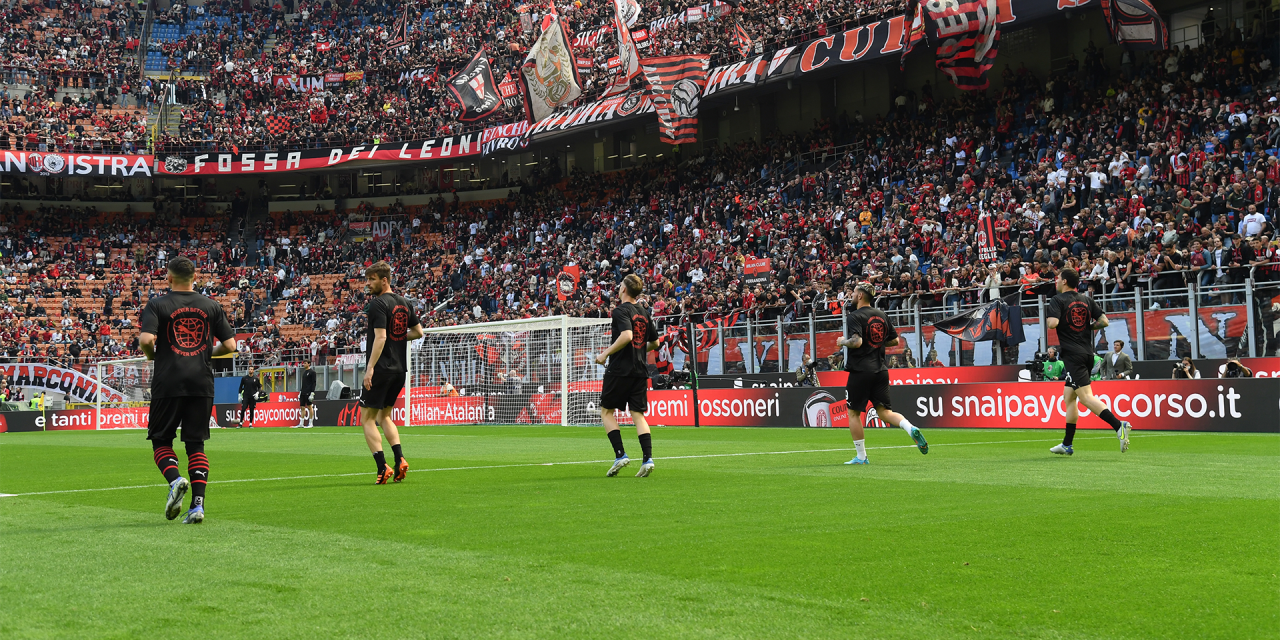
With RE:JERSEY, PUMA aims to reduce waste and pave the way towards more circular production models in the future. Sustainability is also a key value for AC Milan, which has committed to sustainable and social responsibility initiatives, with a particular focus on younger generations.
While PUMA’s football kits on the market today are already made from 100% recycled polyester, the RE:JERSEY shirts worn ahead of Sunday’s game are made with 75% repurposed football jerseys. The remaining 25% comes from SEAQUAL ® MARINE PLASTIC[1].
“We are excited that AC Milan has joined us to be a part of the RE:JERSEY project,” said Matthias Baeumer, General Manager BU Teamsport at PUMA. “As we want to take more responsibility when it comes to the end of life of our products, RE:JERSEY is an important step in garment-to-garment recycling.”
In the recycling process used for the RE:JERSEY project, even old garments that feature logos, embroideries and club badges can be used, as the material is chemically broken down into its main components (depolymerization). Colors are then filtered out and the material is chemically put back together to create a yarn (repolymerization) that has the same performance characteristics as virgin polyester.
As part of the project, AC MILAN and PUMA will set up collection bins, where fans will be able to donate their old polyester items, which will be used for the RE:JERSEY project.“
AC Milan is a Club that truly believes in the social value of football. Sustainability is an important value for all of us at the Club, we need to do our part to protect the future of our planet, so we are delighted to join this initiative with our partner PUMA and be part of the RE:JERSEY project,” said Casper Stylsvig, Chief Revenue Officer at AC Milan.
[1] SEAQUAL ® MARINE PLASTIC
SEAQUAL® MARINE PLASTIC is a sustainable and fully traceable raw material from SEAQUAL INITIATIVE that is made from marine litter, or in some cases from end-of-life fishing nets or other plastics used in aquaculture (such as those used in mussel and oyster farming). For more information, visit https://www.seaqual.org